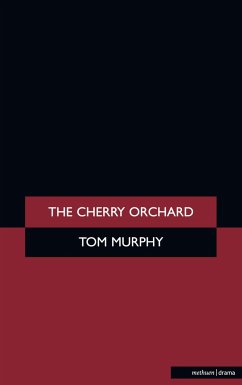Published to tie in with the world premiere at the Abbey Theatre, Dublin In Chekhov's tragi-comedy - perhaps his most popular play - the Gayev family is torn by powerful forces, forces rooted deep in history and in the society around them. Their estate is hopelessly in debt: urged to cut down their beautiful cherry orchard and sell the land for holiday cottages, they struggle to act decisively. Tom Murphy's fine vernacular version allows us to re-imagine the events of the play in the last days of Anglo-Irish colonialism. It gives this great play vivid new life within our own history and social consciousness.
Hinweis: Dieser Artikel kann nur an eine deutsche Lieferadresse ausgeliefert werden.
Hinweis: Dieser Artikel kann nur an eine deutsche Lieferadresse ausgeliefert werden.








